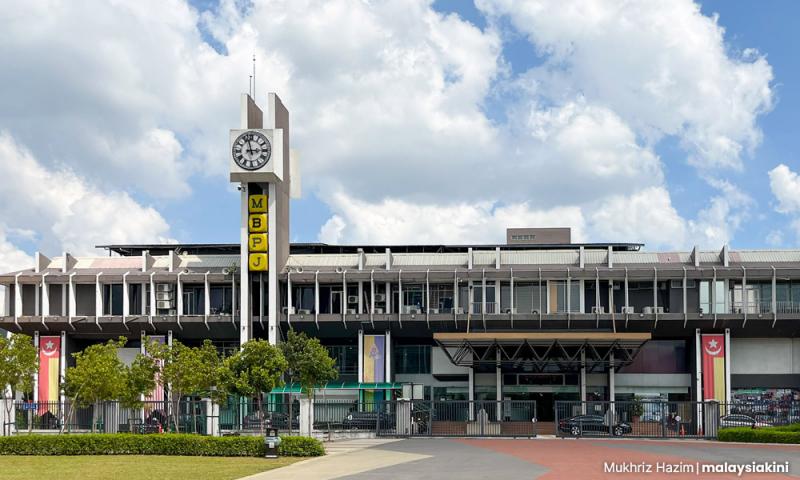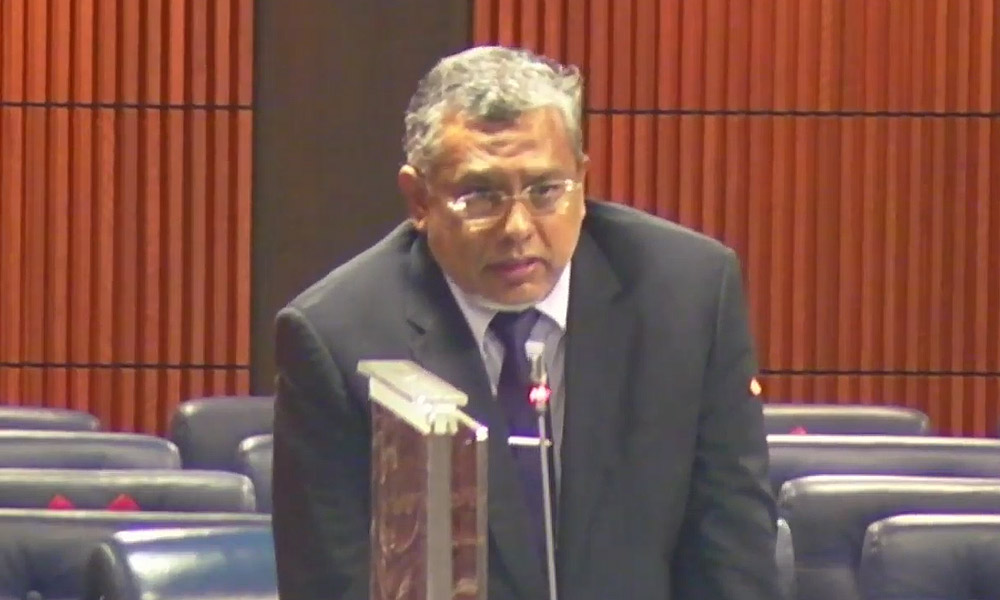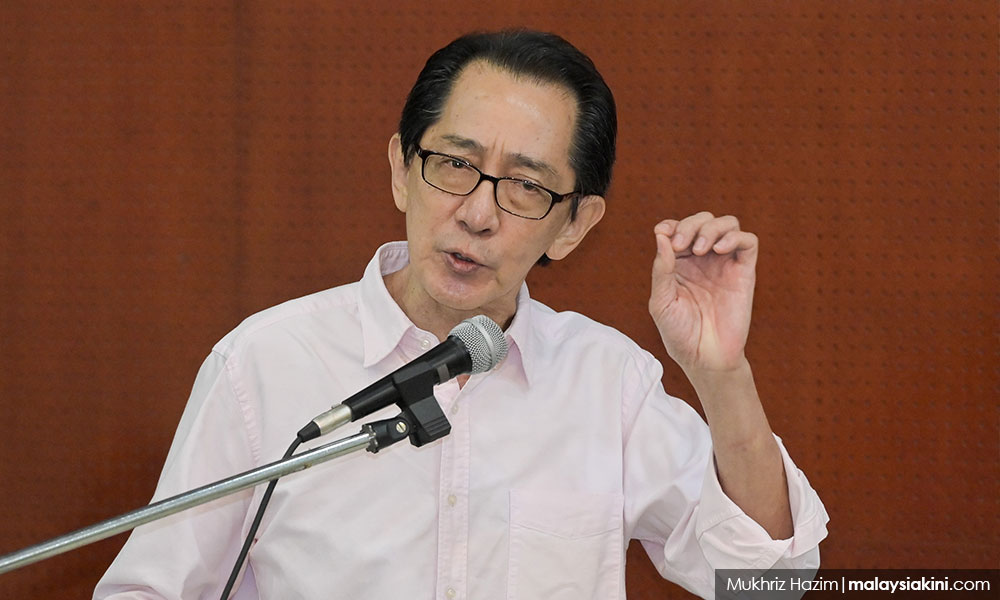
S Thayaparan
“With these statistics in mind, it is quite certain that whoever is interested in nominating a candidate for a local government election would be sure to consider prioritising a candidate who is Malay.”
COMMENT | Detractors of local council election in this country believe in a federalised and centralised form of governance because it is easier to carry out religious and racial agendas without the inconvenience of dissent from local diverse polities.
The Bersih chairperson for instance chose to assuage the fears of the political class, by implying that since racial demographics are changing in urban areas, the sanctity of Malay leadership would not be challenged by the will of the people.
Meanwhile, former MP Mohamed Hanipa Maidin used London and the mayorship of a Muslim to highlight the electability of Muslims in diverse cities.
This is not exactly the best of examples, because Sadiq Khan would not pass the purity test of the religious right in this country and Muslims in London are generally considered liberal by Malaysian standards.
“With these statistics in mind, it is quite certain that whoever is interested in nominating a candidate for a local government election would be sure to consider prioritising a candidate who is Malay.”
- Bersih chairperson Faisal Abdul Aziz
COMMENT | Detractors of local council election in this country believe in a federalised and centralised form of governance because it is easier to carry out religious and racial agendas without the inconvenience of dissent from local diverse polities.
The Bersih chairperson for instance chose to assuage the fears of the political class, by implying that since racial demographics are changing in urban areas, the sanctity of Malay leadership would not be challenged by the will of the people.
Meanwhile, former MP Mohamed Hanipa Maidin used London and the mayorship of a Muslim to highlight the electability of Muslims in diverse cities.
This is not exactly the best of examples, because Sadiq Khan would not pass the purity test of the religious right in this country and Muslims in London are generally considered liberal by Malaysian standards.

Mohamed Hanipa Maidin
Indeed, Sadiq does everything that would be verboten to the religious right in this country in terms of optics and policy.
If anything, one of the reasons why detractors who base their arguments on racial and religious grounds fear local government election, especially in urban/liberal conclaves, is because a liberal Muslim could get elected and this would be extremely inconvenient if these Muslims did not follow the religious groupthink instead opting for good governance and transparency.
With this point in mind, it is important to answer Hanipa’s question about PAS' opposition to local council election and the lack of “Chinese imbalance” in Kelantan, Terengganu, Perlis and Kedah.
The reason why PAS is not interested in local government polls in these states is because there is no imbalance of Chinese or Indians or anyone who would object to their theocratic rule.
In Kedah for example, the menteri besar unilaterally decided that there would be no more gaming licences.
Imagine how this would play out if there were local elected councillors who set policy for this sort of thing and they were of a different view. However, because of the ethnic imbalance of “Malays” (am I allowed to write this?) there is no fear of religious diktats being subject to oversight.
And this is the key everyone seems to be missing in these arguments. While the demographics are changing, urban centres are still the last province of non-Malay political power.
Demographics
The religious right and the deep Islamic state understand that the demographics are changing. They understand that the non-Malays are losing the demographics game.
However, the reality is that the religious and racial pushback of their agendas emanate from urban centres.
Now, of course, you can talk about centralised power either on a state or federal level and the corruption that comes with it. Local council election merely place another barrier to overcome when it comes to corruption for instance but this is what it is there for.
Nobody in the political class wants a realignment of the scope of powers and jurisdiction that comes with local government election.
Refer to Kua Kia Soong’s comment in 2018. He wrote - “The temptation for any ruling coalition to appoint councillors instead of having them elected into office is certainly strong, since the local tiers of government have been seen as the launch pad for political party appointees as well as their NGO allies all these years.”
But more importantly is Kua’s point about local education authorities - "Few Malaysians have noticed, for example, that the all-important role of local education authorities in the Education Act 1961 is no longer mentioned in the Education Act 1996. Local education authorities serve to allocate funds and other facilities to needy sectors, and can serve to dissipate politicisation of education."
Indeed, Sadiq does everything that would be verboten to the religious right in this country in terms of optics and policy.
If anything, one of the reasons why detractors who base their arguments on racial and religious grounds fear local government election, especially in urban/liberal conclaves, is because a liberal Muslim could get elected and this would be extremely inconvenient if these Muslims did not follow the religious groupthink instead opting for good governance and transparency.
With this point in mind, it is important to answer Hanipa’s question about PAS' opposition to local council election and the lack of “Chinese imbalance” in Kelantan, Terengganu, Perlis and Kedah.
The reason why PAS is not interested in local government polls in these states is because there is no imbalance of Chinese or Indians or anyone who would object to their theocratic rule.
In Kedah for example, the menteri besar unilaterally decided that there would be no more gaming licences.
Imagine how this would play out if there were local elected councillors who set policy for this sort of thing and they were of a different view. However, because of the ethnic imbalance of “Malays” (am I allowed to write this?) there is no fear of religious diktats being subject to oversight.
And this is the key everyone seems to be missing in these arguments. While the demographics are changing, urban centres are still the last province of non-Malay political power.
Demographics
The religious right and the deep Islamic state understand that the demographics are changing. They understand that the non-Malays are losing the demographics game.
However, the reality is that the religious and racial pushback of their agendas emanate from urban centres.
Now, of course, you can talk about centralised power either on a state or federal level and the corruption that comes with it. Local council election merely place another barrier to overcome when it comes to corruption for instance but this is what it is there for.
Nobody in the political class wants a realignment of the scope of powers and jurisdiction that comes with local government election.
Refer to Kua Kia Soong’s comment in 2018. He wrote - “The temptation for any ruling coalition to appoint councillors instead of having them elected into office is certainly strong, since the local tiers of government have been seen as the launch pad for political party appointees as well as their NGO allies all these years.”
But more importantly is Kua’s point about local education authorities - "Few Malaysians have noticed, for example, that the all-important role of local education authorities in the Education Act 1961 is no longer mentioned in the Education Act 1996. Local education authorities serve to allocate funds and other facilities to needy sectors, and can serve to dissipate politicisation of education."

Kua Kia Soong
However, corruption and mismanagement that comes with centralised power is not really the main issue for the extreme religious right in this country.
Everything they do is to disrupt the functionality, moderate secularism and racial and religious cohesion of diverse polities and this means urban centres are the main target.
The religious bureaucracy for instance would have a hard time proposing and enforcing religious diktats when local councils have a say in policy. As it is, they are ever willing to ghettoised sections of urban centres claiming that majority Malay sensitivity needed to be “protected”.
However, even more damaging to the religio-fascist agenda of this country is the electability of moderate or liberal Muslims. Keep in mind state and federal elections are a different ball game.
You know that old saying, that all politics is local, well in the case of local government election, it really is.
While you may get people pandering to populist agendas, what you will get a plethora of are people from the community who understand the communities’ needs and if the election is done right, not aligned with state and federal power brokers.
You know how the religious far right always goes on about liberal Muslims. Well imagine what would happen if a liberal Muslim was voted in by a majority of people who had a platform to express his or her views.
Keep in mind what I wrote earlier. That dissent against religio-fascist agendas emanates from diverse urban centres. How would the optics look if a liberal Muslim were to object to state or federal policies, especially religious and racial policies?
However, corruption and mismanagement that comes with centralised power is not really the main issue for the extreme religious right in this country.
Everything they do is to disrupt the functionality, moderate secularism and racial and religious cohesion of diverse polities and this means urban centres are the main target.
The religious bureaucracy for instance would have a hard time proposing and enforcing religious diktats when local councils have a say in policy. As it is, they are ever willing to ghettoised sections of urban centres claiming that majority Malay sensitivity needed to be “protected”.
However, even more damaging to the religio-fascist agenda of this country is the electability of moderate or liberal Muslims. Keep in mind state and federal elections are a different ball game.
You know that old saying, that all politics is local, well in the case of local government election, it really is.
While you may get people pandering to populist agendas, what you will get a plethora of are people from the community who understand the communities’ needs and if the election is done right, not aligned with state and federal power brokers.
You know how the religious far right always goes on about liberal Muslims. Well imagine what would happen if a liberal Muslim was voted in by a majority of people who had a platform to express his or her views.
Keep in mind what I wrote earlier. That dissent against religio-fascist agendas emanates from diverse urban centres. How would the optics look if a liberal Muslim were to object to state or federal policies, especially religious and racial policies?

Of course, corruption and religious extremism are not mutually exclusive and local council election would also mean transparency when it comes to a whole range of issues that concern the state religious bureaucracy.
What we are talking about here is accountability, especially when it comes to funds for the state religious bureaucracy and religious operatives who jealously guard their provinces.
As Kua wrote back in 2018 – “In this sense, we can see why local authorities are considered the primary units of government. Many services including education, housing, health and transportation require local knowledge and can be better coordinated and more efficiently implemented through the local authority.”
More democracy in the life of citizens is a good thing. You have to be sceptical of anyone who hampers this.
S THAYAPARAN is Commander (Rtd) of the Royal Malaysian Navy. Fīat jūstitia ruat cælum - “Let justice be done though the heavens fall.”

No comments:
Post a Comment